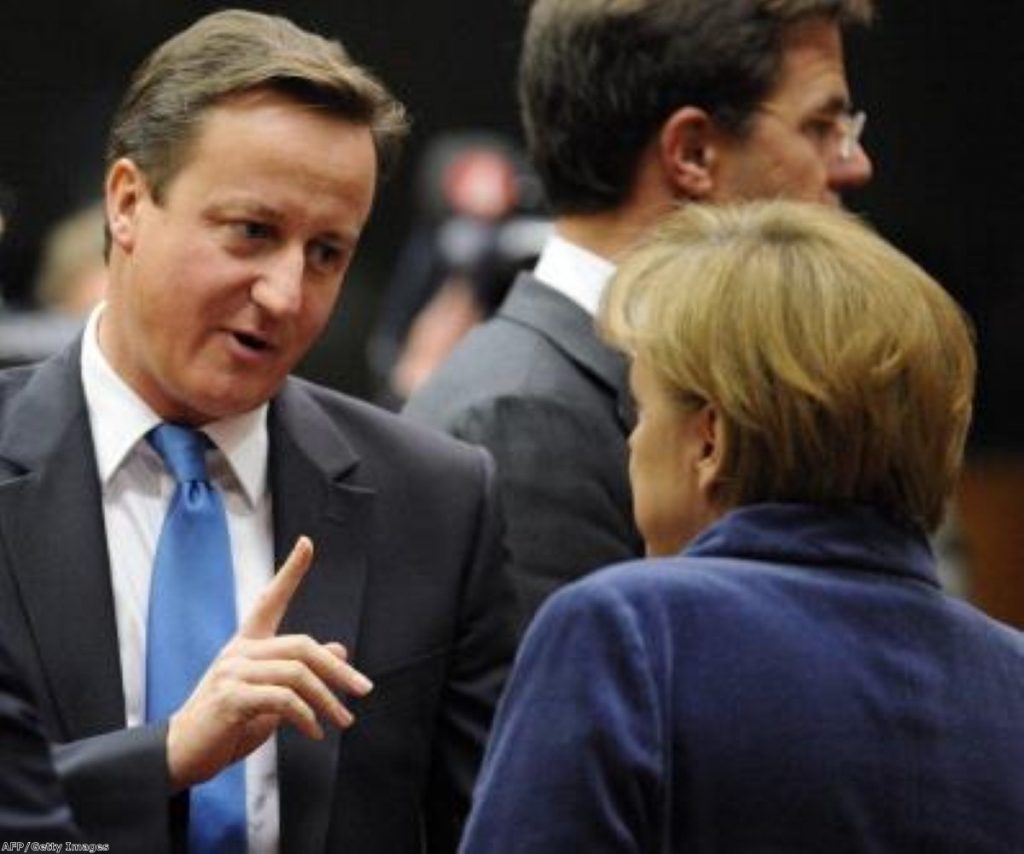Mass opt-out: The plan to repatriate British powers from the EU
By Ian Dunt Follow @IanDunt
Eurosceptics are planning to force the government to repatriate 130 EU crime and policing laws overnight using a mass opt-out clause in the Lisbon treaty.
The plan comes amid moves on the continent to force member states to relinquish control of tax and spending policy
The EU will have to agree the budgets of heavily indebted countries under plans to be finalised in Brussels tomorrow, at a meeting attended by David Cameron.


Greece is fighting back against the plan, but Germany and the International Monetary Fund (IMF) are setting harsh conditions for the country's next £100 billion bail-out.
Meanwhile, the eurosceptic lobby group Open Europe highlighted a complex provision in the Lisbon treaty which allows the government to decide before June 2014 whether to continue to apply a raft of EU justice and policing laws past December 2014.
Under the provision, opting out of one of the existing laws means the government must opt out of all of them.
"Despite this choice being of great political, legal and democratic importance it has barely been debated," said Open Europe research director Stephen Booth.
"As much as the government would like to put this crucial decision off until 2014, this is neither politically nor practically tenable.
"To date, the government has chosen to opt in on every occasion it has had to make such a decision and has not required parliament's approval. No matter where one stands in the debate, this clearly marks a failure of democratic scrutiny."
If the government fails to opt out of the laws, jurisdiction will fall irreversibly to European Court of Justice in Luxembourg.
The laws which the UK has the oppourtunity to opt out of include the European arrest warrant, which recently received considerable publicity in the shape of Wikileaks founder Julian Assange, who is fighting to avoid extradition from the UK to Sweden.
The UK may block an extradition on the basis of procedural grounds but not for any other reason, raising concerns from civil liberties campaigners.
Since the introduction of the law in 2004, some 193 British nationals have been surrendered by UK authorities.
Privacy groups are also rubbing their hands at the prospect of stepping out the 'prum treaty' rule on forensics sharing, which allows DNA and fingerprint results to be passed across borders.
Open Euope says the UK can still opt-in to individual laws, but only once it takes advantage of the 2014 block opt-out. Alternatively, the government could adopt a similar stance to Denmark's, which would allow the UK to cooperate with EU member states on crime and policing policy but remain outside of the EU legal framework.

